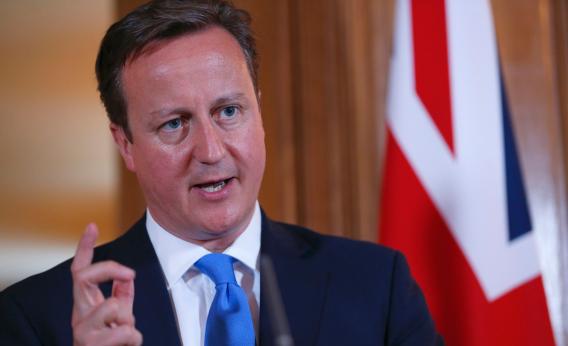Online pornography is “corroding childhood” and will soon be filtered out by U.K. Internet service providers unless users opt in for explicit content, British Prime Minister David Cameron said in a speech Monday:
I want to talk about the Internet, the impact it is having on the innocence of our children, how online pornography is corroding childhood and how, in the darkest corners of the internet, there are things going on that are a direct danger to our children, and that must be stamped out. I’m not making this speech because I want to moralise or scare-monger, but because I feel profoundly as a politician, and as a father, that the time for action has come. This is, quite simply, about how we protect our children and their innocence.
Cameron’s “war on porn” centers on a deal with Internet service providers to block access to adult material by default at the network level. That means, in theory, that all the devices on a given Internet connection will be prevented from reaching sites deemed explicit unless the owner of the connection specifies otherwise. Similar filters are already in place on most U.K. mobile phones. Other measures include a new law against pornography that appears to depict rape, and calls for search engines like Google and Bing to blacklist search terms associated with child pornography and other illegal content.
It’s unclear how effective the policy will be. For one thing, a leaked letter from the prime minister’s office to Internet Service Providers revealed that Cameron’s “default on” setting for family filters is not quite what you might think. New ISP customers will indeed see the filter box checked when they activate their service, and will have to uncheck it if they don’t want their Internet providers blocking legal adult content. Existing customers, meanwhile, will get a message from their ISPs sometime in 2014 asking if they want to turn on the filters. That sounds more like “default off”—so why would the ISPs call it “default on?” Because Cameron begged them to. From the letter:
Without changing what you will be offering … the Prime Minister would like to be able to refer to your solutions [as] “default-on.” Can you consider how to include this language (or similar) in the screens that begin the set-up process?
Doublespeak aside, the agreement really does seem likely to tilt the field in favor of family filters, by forcing households to make an explicit decision to allow porn if they don’t want it blocked. No doubt some awkward conversations are on the horizon.
On the other hand, as the Guardian’s Tom Meltzer points out, “any default-on system needs to be simple enough for a stupid adult to navigate,” which means that web-savvy kids should have little problem circumventing it. If it all sounds a lot like the type of “nanny state” policy that conservatives like Cameron are supposed to deplore—well, it’s hard to argue with that. But here’s Cameron’s best attempt:
Of course, a free and open internet is vital. But in no other market – and with no other industry – do we have such an extraordinarily light touch when it comes to protecting our children. Children can’t go into the shops or the cinema and buy things meant for adults or have adult experiences – we rightly regulate to protect them. But when it comes to the Internet in the balance between freedom and responsibility, we have neglected our responsibility to our children.
Cameron’s crackdown drew quick fire from freedom-of-speech and digital-rights groups, though their messages so far have been a little inconsistent. Some are decrying the censorship on the grounds that it will unintentionally block access to legitimate information about sexual health and so forth, while others are warning that it won’t work at all. Meanwhile, conservative tabloids like the Daily Mail are declaring sweet victory in their righteous crusade to rid the Web of lewdness. Cameron himself acknowledged the populist rag in a statement, saying, “The Daily Mail has campaigned hard to make Internet search engine filters ‘default on.’ Today they can declare that campaign a success.”
The funny thing about these types of debates is that you rarely hear much from one of the main constituencies: the people who just want to keep getting their porn but are too abashed to say so. Oh well—they’ll always have the Daily Mail.
Hypocrisy, you see, remains well-protected by free-speech laws.
